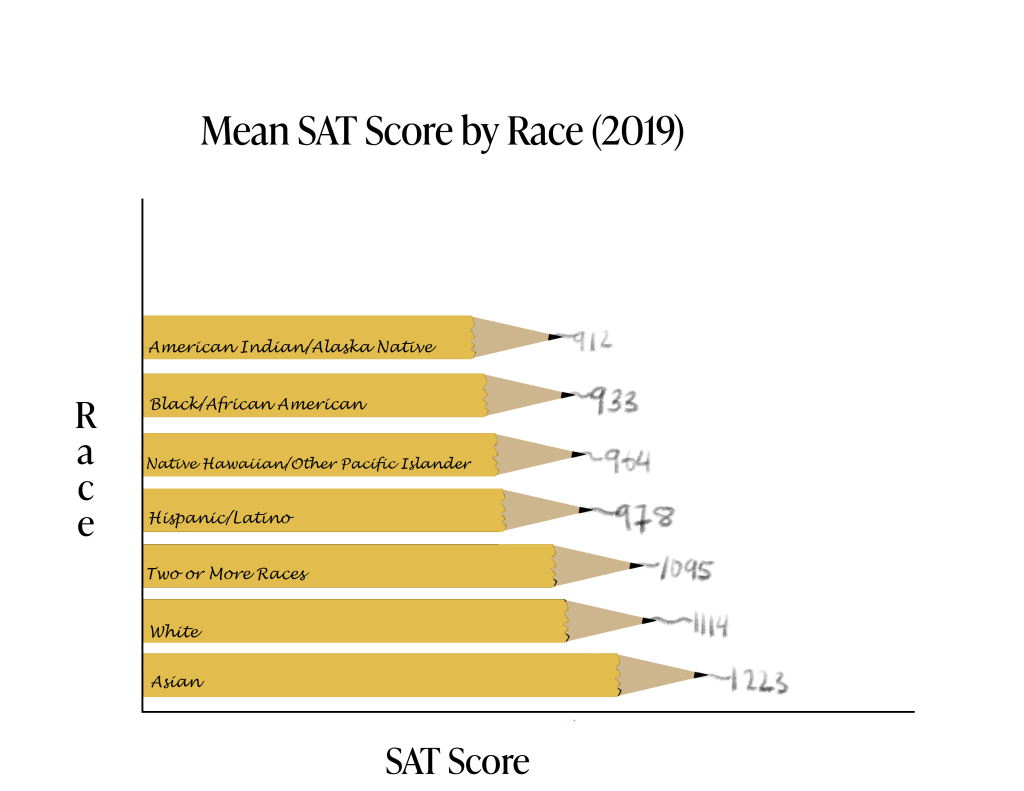This year, the COVID-19 pandemic forced many colleges into doing something long overdue. The repeated cancellations of SATs and ACTs, a result of COVID-19, caused most colleges around the country to go test optional, meaning that a test score would not be required for admission. The University of California (UC) system went one step further going test blind, refusing to consider student’s test scores at all during the admission process.
It is imperative that other colleges and universities around the country embrace these policies as well, in order to offer mobility and opportunity to the students who need and deserve it the most. Requiring standardized tests for admissions further stimulates a system that has continuously discriminated against low-income students of color while elevating affluent white students to the very top.
Concerns over the validity and equity of admissions testing have grown in recent years, contributing to a growing test optional wave that more than 1,600 schools are jumping on. This new wave just might lead to the end of the SAT and ACT as we know it.
For a long time, the College Board, who founded the SAT, has praised the test mainly for its predictive power, claiming that SAT scores — in combination with high school Grade Point Average (GPA) — can accurately tell schools how well a student will do in college.
However, several studies, including one published by the American Educational Research Association, looked at the difference between students who submitted test scores and students who didn’t at existing test optional schools. Findings showed that while high school GPA does correlate very strongly with college success, SAT and ACT submissions do not. Students who didn’t submit test scores were also more likely to be first in their family to go to college, non-white, female, or Pell Grant recipients.
So while the SAT can sometimes predict college success, it seems to more accurately predict something else: wealth. Due to the way the test is designed, much of the test measures not how knowledgeable a student is, but simply how well they can prepare for the SAT or ACT. Thus, more affluent families can afford expensive prep courses and high testing costs, putting low-income test-takers at a disadvantage.
Testing costs run up to $65 per test, not to mention processing fees and Advanced Placement (AP) program costs, all of which rake in over one billion dollars for the College Board in annual revenue. Despite their claims to “connect students to college success and opportunity,” the College Board has effectively turned students into their customers, backing them into a corner that paints the SAT as the only way out.
Additionally, the College Board’s own test results data from 2019 showed that Black students scored an average of 933, while white students scored about 1114. This points to an obvious racial and financial achievement gap that is growing as a result of tests like the SAT and ACT.

This inequity can even be traced back to the first days of the test itself, in 1926. Carl Brigham, who designed the SAT, was an active supporter of the eugenics movement, and used the test to prove his claim that Black people were fundamentally less intelligent than white people.
The UC system has already taken the first steps to dismantle this pattern, announcing that starting in 2023, all UC schools will be going test blind, removing the SAT/ACT requirement from student applications. This is a huge step, and could be the beginning of a trend, leading other colleges to follow suit.
This move by the UC system is not the only answer to every problem with the college admissions system, as there’s still a much larger conversation to be had about access to higher education in the US. However, it’s certainly a step in the right direction.
By allowing students to not submit test scores, or better yet, not accepting test scores at all, schools will be able to take steps towards undoing the racist foundation of higher education, and offer opportunity and mobility to the students at the bottom who deserve it just as much as the students at the top. If a school really wants to keep their anti-racist promise to students of color, and continue to be an engine of mobility for low-income students, going test blind is the first, obvious step to doing so.





